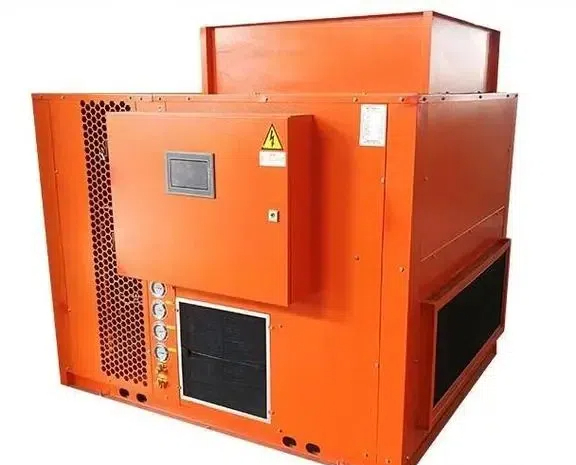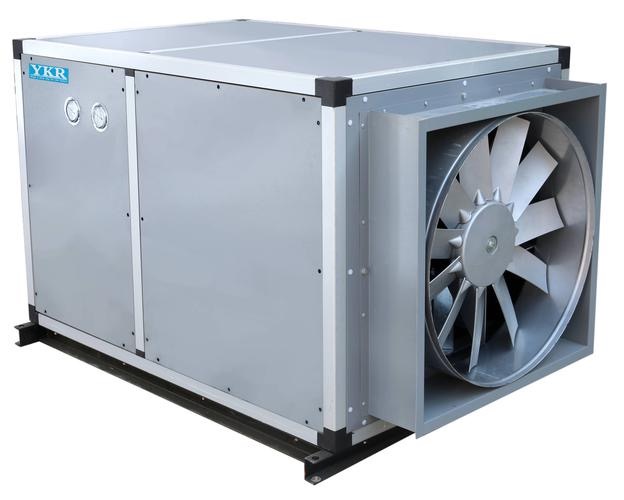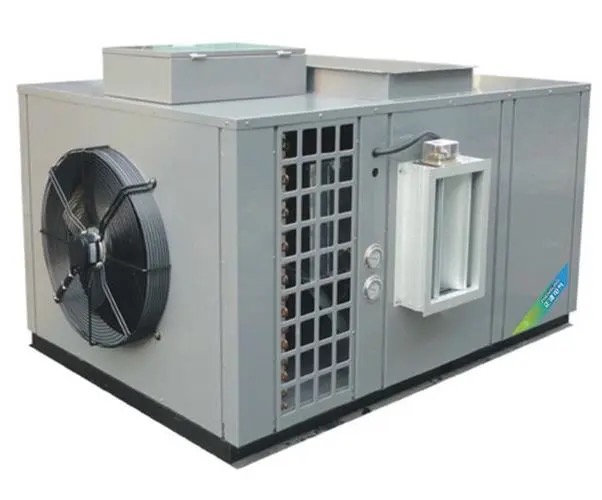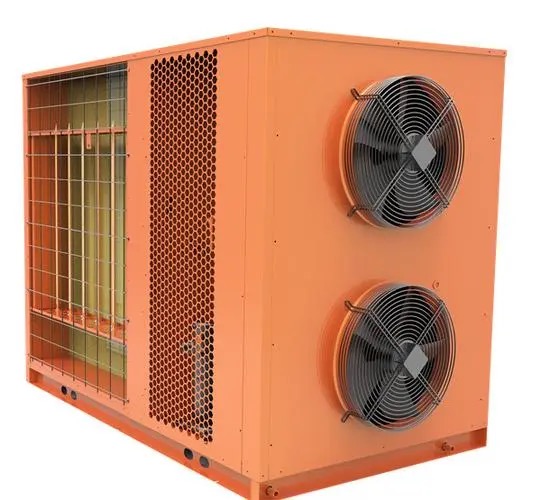
Content Menu
● Introduction
● Understanding Heat Pump Dryer Technology
>> How Heat Pump Dryers Work
● Energy Efficiency of Heat Pump Dryers
>> Comparing Energy Consumption
>> Long-Term Cost Savings
● Environmental Benefits of Heat Pump Dryers
● Pros and Cons of Heat Pump Dryers
>> Pros:
>> Cons:
● Best Heat Pump Dryer Brands and Models
● Tips for Maximizing Heat Pump Dryer Efficiency
● The Future of Laundry: Heat Pump Dryer Innovations
● Conclusion: Are Heat Pump Dryers Worth It?
● Frequently Asked Questions
>> Q1: How much energy can I save with a heat pump dryer?
>> Q2: Do heat pump dryers take longer to dry clothes?
>> Q3: Are heat pump dryers more expensive to buy?
>> Q4: Do heat pump dryers require special installation?
>> Q5: How long do heat pump dryers last?
Introduction
In recent years, the push for more energy-efficient home appliances has led to significant innovations in laundry technology. One of the most promising developments is the heat pump dryer, a revolutionary appliance that promises to transform the way we dry our clothes. As consumers become increasingly conscious of their energy consumption and environmental impact, many are asking: Are heat pump dryers more efficient than traditional models? In this comprehensive guide, we'll explore the world of heat pump dryers, their efficiency, benefits, and potential drawbacks.
Understanding Heat Pump Dryer Technology
Heat pump dryers represent a significant leap forward in clothes drying technology. Unlike conventional dryers that expel hot, moist air outside, heat pump dryers use a closed-loop system to recycle and reuse hot air. This innovative approach not only saves energy but also allows for more gentle drying of clothes.
How Heat Pump Dryers Work
1. Air Circulation: The process begins with warm air circulating through the drum, absorbing moisture from the clothes.
2. Heat Exchange: The moist air then passes through an evaporator, which cools and condenses the water vapor.
3. Water Collection: The condensed water is collected in a tank or drained directly.
4. Air Reheating: The now-dry air is reheated by the heat pump and circulated back into the drum.
5. Continuous Cycle: This process repeats until the clothes are fully dry.
This closed-loop system is the key to the heat pump dryer's efficiency, as it recycles heat that would otherwise be wasted in traditional dryers.

Energy Efficiency of Heat Pump Dryers
One of the primary advantages of heat pump dryers is their superior energy efficiency. Studies have shown that heat pump dryers can use up to 50% less energy than conventional electric dryers. This significant reduction in energy consumption translates to lower electricity bills and a smaller carbon footprint.
Comparing Energy Consumption
To put this into perspective, let's look at some numbers:
- A typical electric dryer uses about 3-4 kWh of energy per load.
- A heat pump dryer, on average, uses only 1.5-2 kWh per load.
Over the course of a year, with regular use, this difference can add up to substantial energy savings.
Long-Term Cost Savings
While heat pump dryers often come with a higher upfront cost, the long-term savings on energy bills can offset this initial investment. Depending on your local electricity rates and frequency of use, a heat pump dryer could pay for itself in energy savings within a few years.
Environmental Benefits of Heat Pump Dryers
As we become more aware of our impact on the environment, choosing energy-efficient appliances becomes increasingly important. Heat pump dryers offer several environmental benefits:
1. Reduced Energy Consumption: Lower energy use means fewer greenhouse gas emissions from power plants.
2. No External Venting: Heat pump dryers don't require venting to the outside, which can improve home insulation and energy efficiency.
3. Lower Carbon Footprint: The overall reduction in energy use contributes to a smaller carbon footprint for your household.
4. Water Conservation: Some models can collect condensed water for use in steam irons or other household tasks.
Pros and Cons of Heat Pump Dryers
As with any technology, heat pump dryers have their advantages and disadvantages. Let's explore both sides:
Pros:
1. Energy Efficiency: Significantly lower energy consumption compared to traditional dryers.
2. Gentler on Clothes: Lower drying temperatures can help extend the life of your garments.
3. No Need for Venting: Can be installed in various locations within the home.
4. Lower Operating Costs: Reduced energy bills over time.
5. Eco-Friendly: Smaller carbon footprint and environmental impact.
Cons:
1. Higher Initial Cost: Heat pump dryers are generally more expensive upfront.
2. Longer Drying Times: The lower temperatures mean cycles can take longer to complete.
3. Smaller Capacity: Many models have a smaller drum size compared to traditional dryers.
4. Maintenance: Regular cleaning of filters and heat exchangers is necessary for optimal performance.
5. Complexity: More complex technology can mean potentially higher repair costs.

Best Heat Pump Dryer Brands and Models
Several manufacturers have entered the heat pump dryer market, offering a range of models to suit different needs and budgets. Some of the top brands include:
1. Miele: Known for high-quality, durable appliances.
2. Bosch: Offers a range of efficient and well-designed models.
3. LG: Features innovative technology and smart home integration.
4. Whirlpool: Provides reliable performance at competitive prices.
5. Samsung: Offers stylish designs with advanced features.
When choosing a heat pump dryer, consider factors such as capacity, energy rating, features, and warranty coverage.
Tips for Maximizing Heat Pump Dryer Efficiency
To get the most out of your heat pump dryer and ensure optimal energy efficiency, follow these tips:
1. Sort Clothes Properly: Group similar fabrics and weights together for more even drying.
2. Don't Overload: Allow space for air to circulate freely around the clothes.
3. Clean Filters Regularly: Keep lint filters and heat exchangers clean for optimal performance.
4. Use Sensor Drying: Take advantage of moisture sensors to avoid over-drying.
5. Perform Regular Maintenance: Follow the manufacturer's guidelines for maintenance and cleaning.
6. Choose the Right Settings: Use the appropriate cycle and temperature for each load.
7. Consider Drying Time: Plan your laundry to take advantage of off-peak electricity rates if available.
The Future of Laundry: Heat Pump Dryer Innovations
As technology continues to advance, we can expect to see further improvements in heat pump dryer efficiency and functionality. Some areas of innovation include:
1. Smart Home Integration: Enhanced connectivity and control through smartphones and home automation systems.
2. Improved Sensors: More accurate moisture and temperature sensing for optimal drying.
3. Faster Drying Times: Advancements in heat pump technology to reduce cycle duration.
4. Increased Capacity: Larger drum sizes to accommodate bigger loads.
5. Enhanced Energy Efficiency: Continued improvements in energy consumption and performance.
Conclusion: Are Heat Pump Dryers Worth It?
In conclusion, heat pump dryers offer significant advantages in terms of energy efficiency and environmental impact. While they come with a higher initial cost and some limitations, the long-term benefits often outweigh these drawbacks for many consumers.
For households that prioritize energy savings, have the budget for the upfront investment, and are willing to adapt to longer drying times, a heat pump dryer can be an excellent choice. However, it's essential to consider your specific needs, laundry habits, and local energy costs when making the decision.
As technology continues to improve and prices potentially decrease, heat pump dryers are likely to become an increasingly attractive option for environmentally conscious consumers looking to reduce their energy consumption and carbon footprint.

Frequently Asked Questions
Q1: How much energy can I save with a heat pump dryer?
A1: Heat pump dryers can save up to 50% of the energy used by conventional electric dryers. The exact savings depend on your usage patterns and local electricity rates.
Q2: Do heat pump dryers take longer to dry clothes?
A2: Yes, heat pump dryers typically have longer cycle times compared to traditional dryers due to their lower operating temperatures. However, this gentler drying process can be better for your clothes.
Q3: Are heat pump dryers more expensive to buy?
A3: Initially, yes. Heat pump dryers often have a higher purchase price than conventional dryers. However, the energy savings over time can offset this higher upfront cost.
Q4: Do heat pump dryers require special installation?
A4: One advantage of heat pump dryers is that they don't require external venting, making them more flexible in terms of installation location. However, they do need proper ventilation and space around them for air circulation.
Q5: How long do heat pump dryers last?
A5: With proper maintenance, heat pump dryers can last 10-15 years or more. Their lifespan is often comparable to or even longer than traditional dryers due to their gentler drying process.












